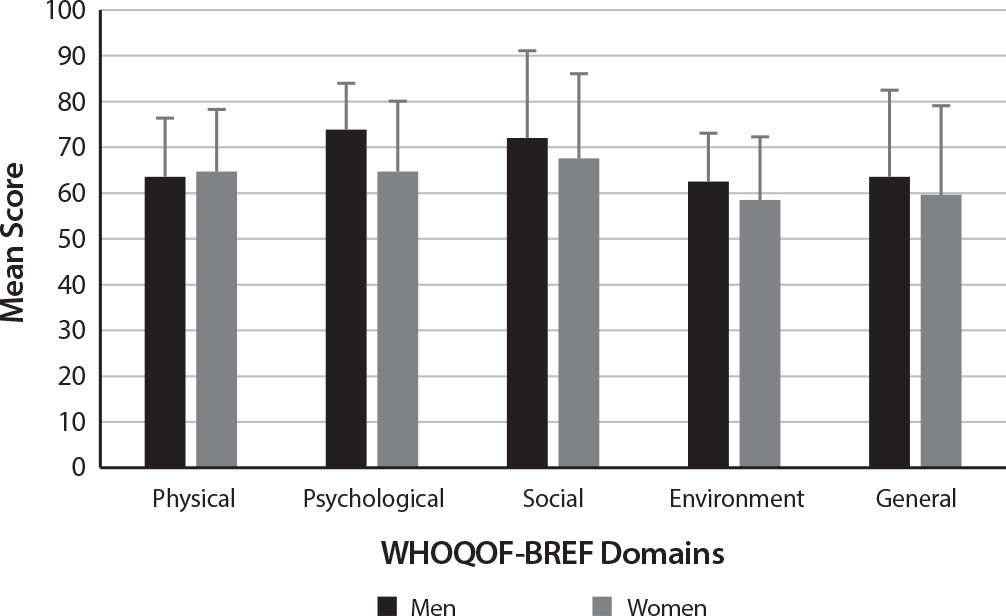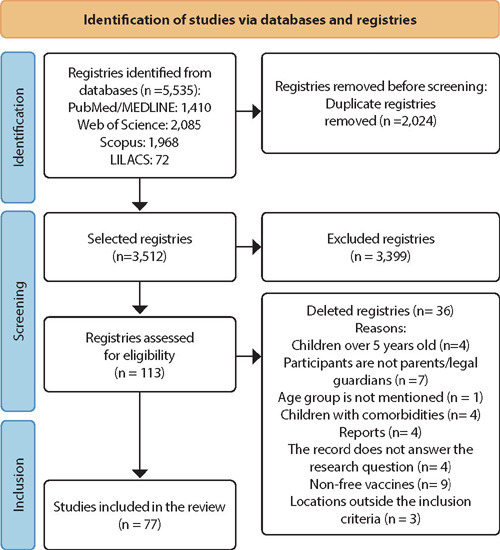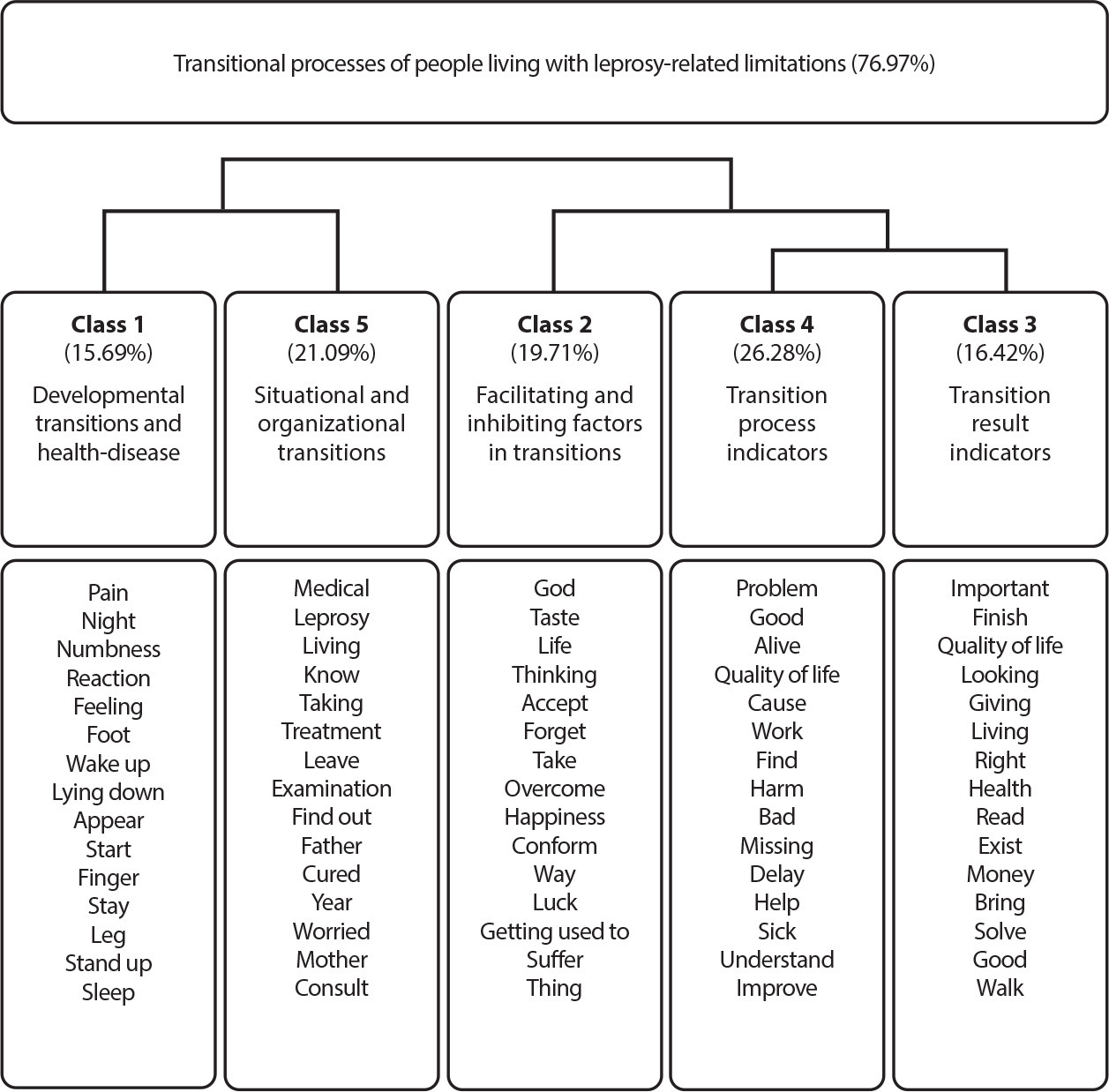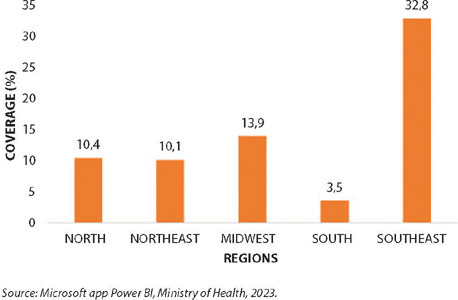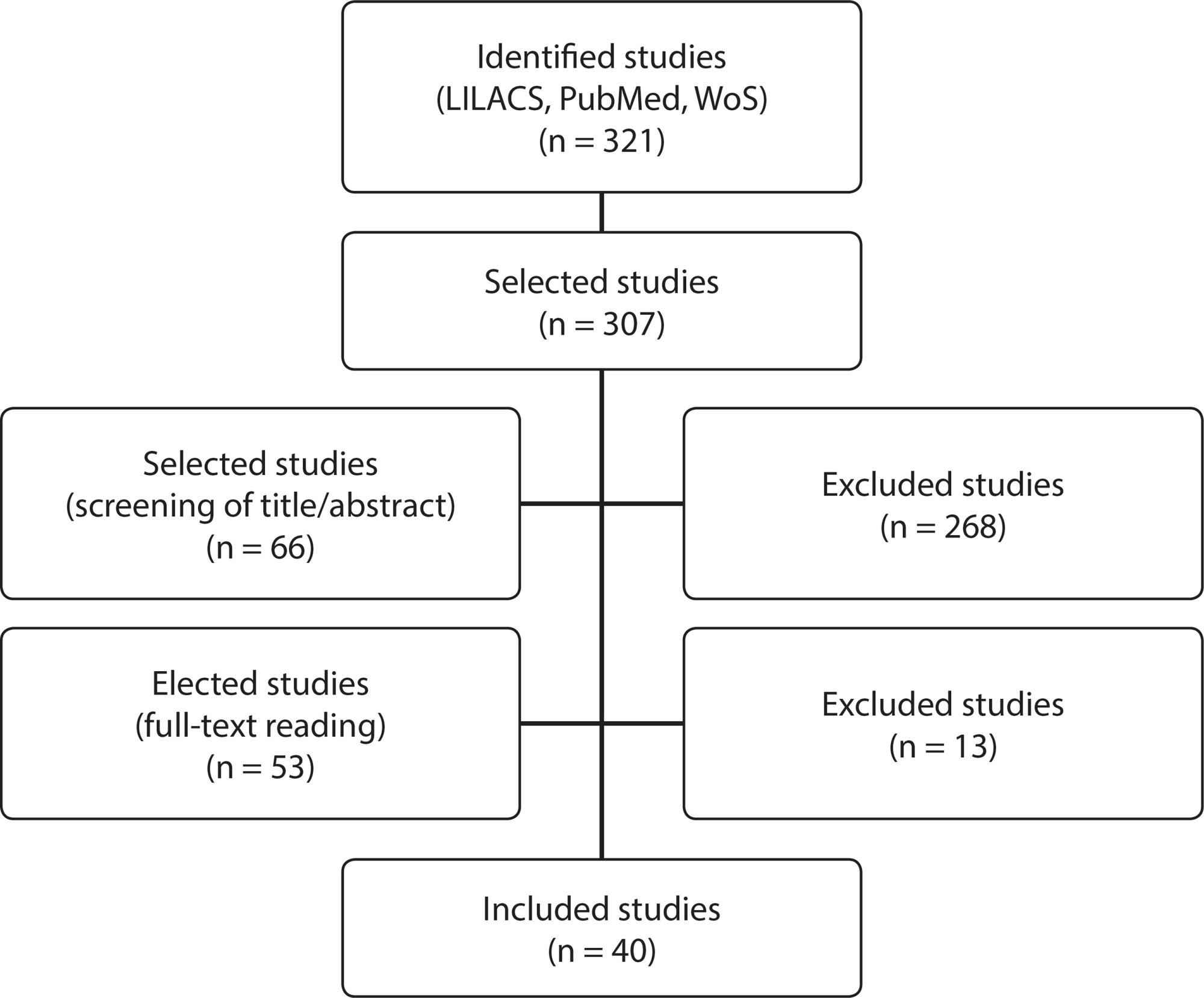-
REVIEW10-18-2022
Decision making by health professionals during COVID-19: an integrative review
Revista Brasileira de Enfermagem. 2022;75:e20210067
Abstract
REVIEWDecision making by health professionals during COVID-19: an integrative review
Revista Brasileira de Enfermagem. 2022;75:e20210067
DOI 10.1590/0034-7167-2021-0067
Views1See moreABSTRACT
Objective:
To analyze the scientific production on the decision making of health workers during the COVID-19 pandemic.
Methods:
Integrative review in the databases CINAHL, MEDLINE, Scopus, ScienceDirect, WoS, and BVS. Inclusion criteria: original articles available in full, in any language, related to the object investigated.
Results:
During this pandemic, health workers have been making decisions based on ethical/bioethical principles (utility, beneficence, non-maleficence, autonomy, justice, proportionality, flexibility, clinical prognosis, duration of the need, and fair health attention), values (solidarity, equality, equity, utilitarianism, relational autonomy, reliability, reciprocity, maximization of the benefits and resources, and prioritization of those in worse conditions), beliefs and personal motivation, protocols, directives, tools, algorithms, recommendations, and criteria.
Final considerations:
Decision making has never been so necessary as in this pandemic. This article is not a recipe for the professionals, since decision making is based on numerous factors. However, it provides them with a foundation that can be helpful in this difficult process.

-
ORIGINAL ARTICLE10-18-2022
Nursing professionals’ biosafety in confronting COVID-19
Revista Brasileira de Enfermagem. 2022;75:e20201104
Abstract
ORIGINAL ARTICLENursing professionals’ biosafety in confronting COVID-19
Revista Brasileira de Enfermagem. 2022;75:e20201104
DOI 10.1590/0034-7167-2020-1104
Views0See moreABSTRACT
Objective:
To investigate the nursing professionals’ biosecurity in confronting COVID-19.
Methods:
This is a Survey type study. Nursing professionals were invited via messaging apps, using self-applied data collection forms. The sample selection (n=693) was non-probabilistic. A descriptive data analysis was conducted.
Results:
considering the biosafety aspects in facing COVID-19, 79.0% of the participants had not received training or considered it insufficient, 69.3% reported the lack of personal protective equipment during work, and 81.8% did not feel safe with the internal flux adaptations for handling COVID-19 cases.
Conclusion:
Continuous and effective nursing team training and personal protective equipment availability are necessary, as well as internal flow adjustments for attending suspected or confirmed cases.
-
ORIGINAL ARTICLE10-18-2022
Crisis, work and nursing: an ethnographic narrative of the coronavirus pandemic in Primary Care in Spain
Revista Brasileira de Enfermagem. 2022;75:e20210069
Abstract
ORIGINAL ARTICLECrisis, work and nursing: an ethnographic narrative of the coronavirus pandemic in Primary Care in Spain
Revista Brasileira de Enfermagem. 2022;75:e20210069
DOI 10.1590/0034-7167-2021-0069
Views0See moreABSTRACT
Objective:
to narrate the experience of facing a long economic and political crisis and the experience of the arrival process of the coronavirus pandemic in a Spanish healthcare center.
Methods:
this is a descriptive qualitative study with ethnographic analysis, with data collection through interviews, participant observation and field diary records.
Results:
the immersion in the context allowed us to identify two axes of domain: “The crisis, work in the community and the territory in Primary Care”; “The inevitability of being a nurse in facing a health crisis”.
Final considerations:
the narrative portrays the ethics in field research, tensions and values of nursing work in crisis situations. Nurses’ experiences are presented in narratives of dissatisfaction and difficulties, but with the support of values related to guaranteeing assistance to users and cooperation and solidarity in the collective organization of workers to face the COVID-19 crisis.
-
ORIGINAL ARTICLE10-17-2022
Construction and validation of clinical scenarios for training informal caregivers of dependent persons
Revista Brasileira de Enfermagem. 2022;75(5):e20220140
Abstract
ORIGINAL ARTICLEConstruction and validation of clinical scenarios for training informal caregivers of dependent persons
Revista Brasileira de Enfermagem. 2022;75(5):e20220140
DOI 10.1590/0034-7167-2022-0140
Views0See moreABSTRACT
Objective:
To construct and validate three clinical scenarios for training dependent persons’ informal caregivers.
Methods:
Methodological study, conducted between January and August 2021, in a municipality in the northwest of the state of Paraná. It was developed in two stages: construction of scenarios; and content validation by experts (n = 12). To estimate the degree of agreement between the experts, the content validity index was used, and 80% was considered an acceptable rate of agreement.
Results:
The simulation scenarios proved appropriate, obtaining an average value of 91.6%. However, some adjustments were made in their organization pertaining clarity in the wording of guidelines, as suggested by the expert validators.
Conclusions:
The construction and validation of the clinical scenarios proved to be adequate and relevant for use in the training of informal caregivers of dependent persons.
-
ORIGINAL ARTICLE10-17-2022
Semantic validation of educational technology with caregivers of children and adolescents undergoing chemotherapy
Revista Brasileira de Enfermagem. 2022;75(5):e20220294
Abstract
ORIGINAL ARTICLESemantic validation of educational technology with caregivers of children and adolescents undergoing chemotherapy
Revista Brasileira de Enfermagem. 2022;75(5):e20220294
DOI 10.1590/0034-7167-2022-0294
Views0See moreABSTRACT
Objective:
Semantically validate an educational technology with the caregiver of children and adolescents undergoing chemotherapy.
Method:
Methodological study, with a quantitative approach, guided by the theoretical framework of psychometry, developed between March and April 2022, with nine caregivers of children and adolescents undergoing chemotherapy. Educational technology is a digital animation film about the pediatric chemotherapy treatment process, used as a tool for health education.
Results:
In the reliability assessment, the Intraclass Correlation Coefficient was 0.936 [95%CI 0.868-0.984] with p < 0.05 and Cronbach’s alpha of 0.943, demonstrating satisfactory internal consistency. Regarding the semantic analysis, the domains related to objectives, organization, language, appearance, and motivation showed an agreement rate above 80%.
Conclusion:
Educational technology showed satisfactory rates, proving to be a valid, reliable, and important instrument to be used by caregivers of children and adolescents undergoing chemotherapy.
-
ORIGINAL ARTICLE10-17-2022
Validation of the Brazilian Portuguese version of the Venous International Assessment Scale and proposal of revision
Revista Brasileira de Enfermagem. 2022;75(5):e20220100
Abstract
ORIGINAL ARTICLEValidation of the Brazilian Portuguese version of the Venous International Assessment Scale and proposal of revision
Revista Brasileira de Enfermagem. 2022;75(5):e20220100
DOI 10.1590/0034-7167-2022-0100
Views0See moreABSTRACT
Objective:
To validate the Brazilian Portuguese translation and analyze the cultural adaptation of the Venous International Assessment Scale.
Methods:
Observational study by employing the Delphi technique and an equivalence evaluation by experts. The results were analyzed using item scores and by content validity index calculations of item, scale, and universal agreement.
Results:
Three rounds of evaluation were necessary for consensus. Explanatory contents were incorporated into the original scale throughout the process, resulting in a new version: VIA Scale – Revised. This scale obtained a content validity index of 0.96 and a universal agreement of 0.78. In the cross-cultural adequacy analysis phase, a score of 0.77 was obtained. The majority (90.5%) of the participants judged the scale’s decision support property as positive.
Conclusion:
The VIA Scale was validated and culturally adapted to the Brazilian Portuguese language, resulting in the VIA Scale – Revised (VIA-R).
-
ORIGINAL ARTICLE10-17-2022
Serial album on Continuous Insulin Infusion System as an innovative educational technology in diabetes
Revista Brasileira de Enfermagem. 2022;75(5):e20210277
Abstract
ORIGINAL ARTICLESerial album on Continuous Insulin Infusion System as an innovative educational technology in diabetes
Revista Brasileira de Enfermagem. 2022;75(5):e20210277
DOI 10.1590/0034-7167-2021-0277
Views1See moreABSTRACT
Objective:
to build and validate a serial album content and appearance on insulin therapy using a Continuous Infusion System.
Method:
a methodological study, carried out in three stages in Fortaleza, Ceará, Brazil, from August to November 2018. The serial album construction and content and appearance validity were carried out by experts, and assessment, by the target audience. Content Validity Index and Concordance Index were calculated.
Results:
the judges considered the serial album content and appearance to be valid, which means that the material is suitable as an educational technology. Experts suggested adjustments, incorporated into the material for print production of the final version. The target audience also assessed the serial album positively.
Conclusion:
we realized that the serial album was considered an innovative educational technology in diabetes, valuable for promoting knowledge about Continuous Insulin Infusion System, with rich, updated content, combined with clarity, suitable format and explanatory illustrations.
-
10-17-2022
COVID-19 Vaccination Campaign: Fake News Infodemic
Revista Brasileira de Enfermagem. 2022;75(4):e750401
Abstract
COVID-19 Vaccination Campaign: Fake News Infodemic
Revista Brasileira de Enfermagem. 2022;75(4):e750401
DOI 10.1590/0034-7167.2022750401
Views0Globalization has reached the 21st century in the same harmony and dissemination as social networks, similar or correlated with the digital/virtual world as a source of information and advice on Brazilian and international public health. Therefore, people contaminated the cybernetic communication process with various information, true and/or false, causing what is known today as infodemic.Fake […]See more
Search
Search in:
Nuvem de Tags
Enfermagem (930)Cuidados de Enfermagem (269)Atenção Primária à Saúde (239)Idoso (208)Educação em Enfermagem (151)Segurança do Paciente (150)Saúde Mental (145)Educação em Saúde (139)Estudos de Validação (131)Qualidade de Vida (104)Tecnologia Educacional (100)Promoção da Saúde (99)COVID-19 (91)Criança (91)Família (87)Enfermagem Pediátrica (86)Saúde do Trabalhador (86)Adolescente (85)Saúde Pública (82)Estudantes de Enfermagem (77)





